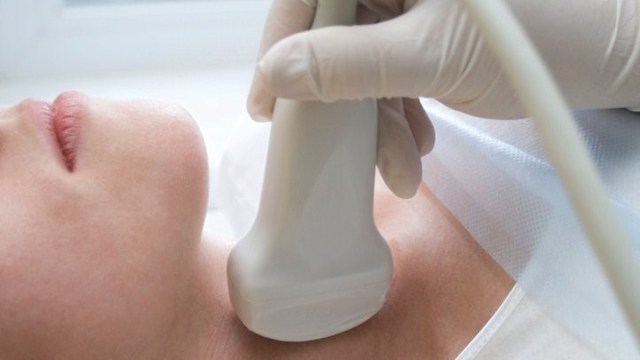 Boyarkina Marina/Fotolia
Boyarkina Marina/Fotolia
Not too long ago, 400 IUs of vitamin D was considered enough for your daily requirements. This particular vitamin wasn't really on the radar.
But now, it's been discovered that more than a billion people lack sufficient vitamin D around the world, according to National Center for Biotechnology Information, U.S. National Library of Medicine website.
Vitamin D is now seen to be vital in several immune functions, and in the development of bone and muscle, according to the NCBI.
Research increasingly points to the role of vitamin D in curbing autoimmune illnesses such as rheumatoid arthritis, lupus, inflammatory bowel disease, multiple sclerosis and type 1 diabetes. An autoimmune type of thyroid disease is Hashimoto's thyroiditis.
Supplementing with vitamin D may prevent these diseases from beginning, or when supplement begins after their onset they may be kept from worsening.
A study evaluated 30 patients who had hypothyroidism as well as 30 people who were healthy. Serum vitamin D levels were found to be lower in patients with hypothyroidism.
It must be noted that the test sample of subjects was quite small. While more research is needed, the NCBI posits that there may be a link between vitamin D and the incidence of thyroid disease.
The center advised that hypothyroid patients should be screened for vitamin D deficiency.
The fat-soluble vitamin D is stored in your body fat and your liver. It is manufactured in the skin after sunlight exposure. About 20 minutes of sunlight on face and arms mid-day, two or three times a week throughout the summer may be sufficient.
For most parts of the world however, during the rest of the year, supplementation is needed. In some areas, supplements would be needed all year.
Small amounts of vitamin D can be found in beef liver, cheese, egg yolks, certain fish, as well as in fish liver oil.
Patient advocate and activist Mary Shomon interviewed Dr. Richard Shames, MD, for About.com. Shames is the author of a number of popular books on thyroid disease, and a thyroid coach. He said that vitamin D is essential to healthy functioning of the thyroid gland.
Shames said that for various reasons — for instance, because people are using sunblock more, and because some are more inclined to use their computers inside than spending time out of doors — people are not getting as much vitamin D from the sun as they did in the past.
He said that multivitamins containing vitamin D are usually only going to have 400 International Units, but recent research indicates that the minimum should be at least 1000 to 2000 IUs daily just to maintain adequate levels. He said, many people may be found to need more than that amount as well.
For instance, Shames recommends 4000 IUs per day for someone at the lower levels, and sometimes higher depending on the individual's condition. He suggested that a patient be retested after two or three months of taking supplements.
Shames recommended that anyone with hypothyroidism have a blood test for vitamin D. He advises that being only in the low end of the normal range for vitamin D is not sufficient for the person dealing with hypothyroidism.
Shames cautions the consumer to take vitamin D3 supplements because it is the form that is most usable by the body.
Sources:
Mackawy, Dr. Amal Mohammed Husein et al. Vitamin D Deficiency and Its Association with Thyroid Disease. Int J Health Sci (Qassim). 2013 Nov; 7(3): 267–275. Retrieved Jan. 28, 2016.
http://www.ncbi.nlm.nih.gov/pmc/articles/PMC3921055
Vitamin D Deficiency. Thyroiduk.org.uk. Retrieved Jan. 28, 2016.
http://www.thyroiduk.org.uk/tuk/related_conditions/vitamin-D-deficiency....
Why is Vitamin D So Important to Thyroid Patients?. About.com. Retrieved Jan. 28, 2016.
http://thyroid.about.com/od/Vitamins-and-Supplements/fl/Why-is-Vitamin-D...
Visit Jody's website at http://www.ncubator.ca
Reviewed February 1, 2016
by Michele Blacksberg RN




Add a CommentComments
There are no comments yet. Be the first one and get the conversation started!